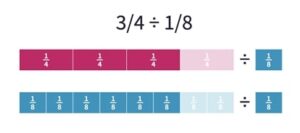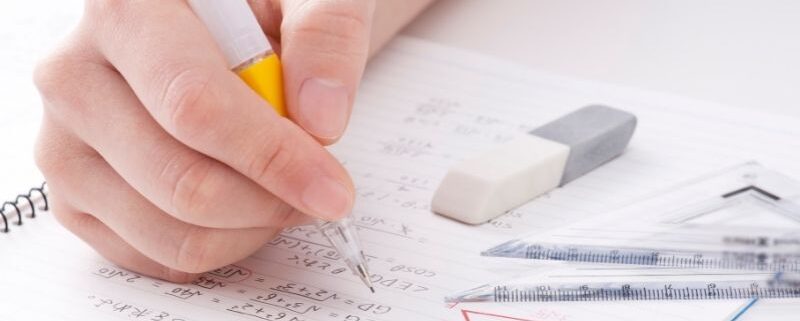Is Your Child Ready for High School Math?
At The Core is excited to share a guest blog from Raj Shah, founder of Math Plus Academy. His mission is to introduce kids and adults to the wonders of mathematics. In addition to Math Plus Academy, he also contributes his time and energy to the Columbus Math Teachers’ Circle and the Julia Robinson Math Festival. In addition, Raj is a founding member of The Global Math Project and a TEDx talk alum.
Math is the one subject that gets more difficult EVERY. SINGLE. YEAR.
From counting to arithmetic to fractions to algebra to geometry to calculus… it never stops!
As a result, even kids that are used to doing well in math eventually hit a wall. For some this wall comes early, but for most it happens in middle school and high school.
If you have a middle schooler, now is the perfect time to check and make sure they are prepared for the rigors of high school math.
Just because your child gets good grades in middle school math doesn’t mean they are ready for high school. Even “A students” struggle with high school math. If math is already a struggle for your middle schooler, then high school math can be really overwhelming. Now is the time to help them get ready.
In my experience, the number one reason students struggle with high school math is their primary strategy is memorization. Their “knowledge” of math is just a collection of memorized facts, formulas, and procedures WITHOUT an understanding of why and how those procedures work and when to apply them.
This strategy can work for a while, but your child’s ability to memorize will be outpaced by the need to think and problem solve in high school. There will be too many types of problems with too many unique rules to survive in memorize mode. Not to mention, blindly memorized rules and procedures are easily forgotten unless they are practiced constantly.
Remember: Procedures are easily forgotten. Understanding lasts forever.
How to check if your child is a “memorizer” instead of a “problem solver”?
Try asking these two questions and see how they solve them:
1) What is 3/4 divided by 1/8?
Memorizer: Knows to “invert and multiply”. But do they remember which one to invert and why this works?
Problem solver: Make sense of the questions as “how many eighths are in 3/4?” Then realizes there are two eights in 1/4, so there must be 6 in 3/4. Problem solved! (See figure below.)

2) Estimate 14.8 x 24.9
Memorizer: Not sure what to do because there are no procedures for estimation.
Problem Solver: Estimate means make the numbers easy enough to do mentally and still get close. Changes it 20 x 20 = 400
What to do if you discover your child is a memorizer and may lack problem solving skills.
1) Start by talking to their math teacher. Let the teacher know your concerns and work on a plan to help your child understand concepts first and memorize procedures last.
2) At home, start asking your child three questions when they are studying or doing math homework:
- “How do you know your answer is right?”
- “Can you explain why?”
- “Can you estimate the answer first?”
3) Finally, encourage your child to ask “why?” and “what if?” questions in class. These are the two most important questions and simultaneously the most often ignored ones as well. When you know why something works, you learn it better and retain the information much longer.
I know a lot of parents get a little squeamish around middle school and high school math. So, if you don’t feel confident doing this on your own. Seek out a trusted professional.
What to look for in a math tutor
You’ll want to find a certified math teacher that understands that students need to figure things out and struggle on their own a bit, but with just enough support to keep them moving forward. You want teachers that won’t spoon feed your child more facts and procedures, you want ones that will challenge them to think!
Too often, tutors end up doing almost all the work. At the end of a session, the student might think they learned something, but when they are on their own again, they’ll realize they still have lots of questions.
Remember: The person who does the work, does the learning.
Think about how you teach a child to ride a bike.
You wouldn’t give a list of instructions and expect them to be able to mimic them perfectly.
You put the child on the bike so they can EXPERIENCE it for themselves. As their “teacher”, you provide just enough support to prevent nasty falls. As they gain skill and confidence, you start letting go of the bike because you know the only way they can learn balance is to try, struggle, and try again until they get it. Learning math is exactly the same!
If you are worried that your child might be a memorizer and could be at risk of really struggling with high school math, please schedule a free assessment at Math Plus Academy, and we can help you figure out where your child stands and what are the best next steps to set your child up for success in high school, on standardized tests, and beyond.
Enjoy this post? Don’t want to miss any future blogs about education, college, or careers?



